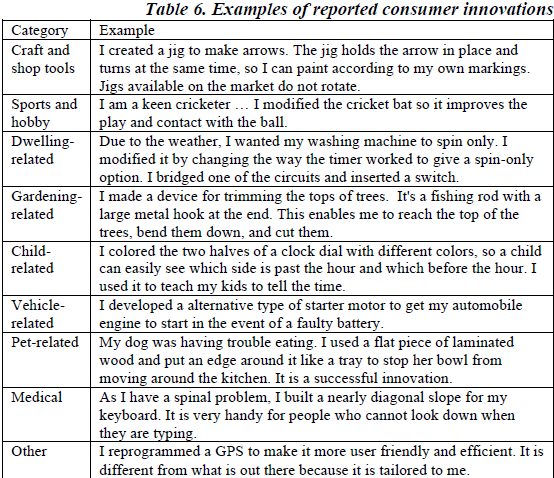Consumer Innovation – Monster Under the Bed?
I am spending time writing chapters for a new book on the Five Pathways to Lasting Behavior Change. A major theme is the living room or household entrepreneur. This is an individual that has learned from hard experience how to influence behavior change in themselves or those around them. Like garage entrepreneurs, they sometimes develop innovations that will scale and impact the lives of millions. Good examples are the 12-steps programs and Weight Watchers. These behavior change programs were hatched by individuals working in their living rooms (a metaphor) not from a corporate R&D lab.
In my research I have found that nearly every case of lasting behavior change has involved some form of consumer innovation. That happens when consumers modify existing products or create new ones to meet their individual needs. It made me wonder, if consumer innovation appears rampant in services designed to change behavior, how much does it happen in other cases?
A colleague sent me a link to Comparing Business and Household Innovation in the Consumer Sector. You can download the full paper for free. The study was national in scale and was done in the UK. Key findings include:
* Over a 3 year period 2.9 million consumers in the UK (6.2% of the population) have innovated by making a change to an existing product or creating their own. On average they did so 8 times over the 3 years.
* Consumers invested twice what all the business in the UK did on innovation. More specifically, “In aggregate, consumers’ annual product development expenditures are 2.3 times larger than the annual consumer product R&D expenditures of all firms in the UK combined.”
* Males with a university degree and technically trained dominate the process, especially if they are college aged or 55 years old and not working.
The table below (taken directly from the article) gives examples of what counts as a household or consumer innovation.
For students and practitioners of innovation the key findings and examples provide important insights into what looks to be a major source of practical creativity. But this is just the beginning of the research.
I am interested to hear from readers that have their own examples of consumer innovation to share. I am considering a website dedicated to the topic and designed to collect, promote, diffuse and study consumer innovations big and small.

